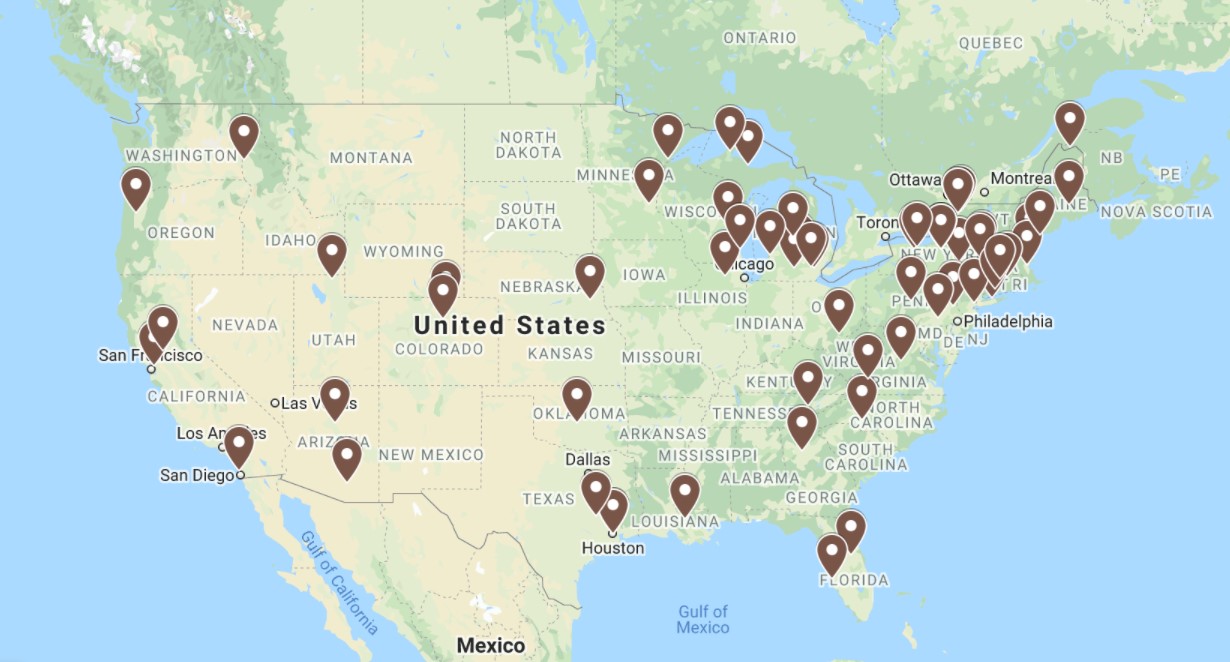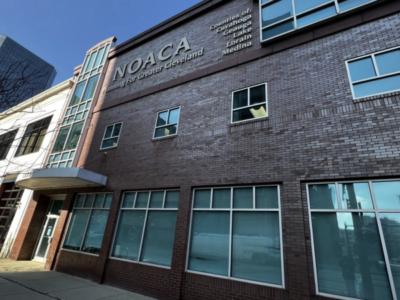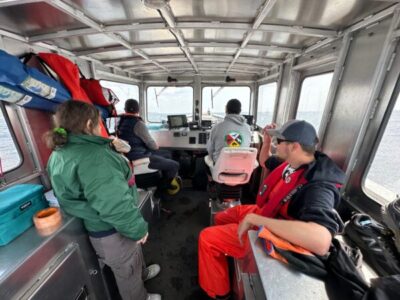
This is part of a series in which the Great Lakes Now staff looks back on 2020.
In any effort to sum up the year that was 2020, one word is unavoidable: poop.
Don’t you agree?
At Great Lakes Now, we’ve kept our finger on the pulse of poop news all year, because we care about our readers and viewers.
You’re welcome.
In April, as part of the “From Rust to Resilience” collaboration, we told you about Buffalo’s green infrastructure program called Raincheck, which aims to reduce combined sewer overflows that send poop flowing into Lake Erie.
API key not valid. Please pass a valid API key.In May, we brought you the story of aquariums around the Great Lakes and how they were taking care of their aquatic residents during the lockdown. We didn’t show any poop in the story, but in a building filled with fish and penguins and beavers and whales, is anything really not about poop? I think we can agree the answer is no.
API key not valid. Please pass a valid API key.In June, we broadcast an update to our 2019 fatberg story, where we dug into the mammoth clogs that can stop up our sewers and lead to combined sewer overflows—meaning poop flowing into the lakes. Serious scientific inquiry shows that fatbergs are made up largely of disposable wipes. Remember how many disinfecting wipes we were using when the pandemic first hit? Well, a lot of people were flushing those down the toilet, which you shouldn’t do unless you like poop in your lakes. Lots of people love wipes, and that’s okay. Some of them are great for dealing with poop. But no matter what you wipe up with them, you shouldn’t flush them down the toilet. Even if they say they’re “flushable.” That’s just a fatberg waiting to happen.
API key not valid. Please pass a valid API key.In July, we told you about manure. That’s what you call poop when you’re about to grow things in it. Anyway, manure—not just chemical fertilizers—are helping to fuel harmful algae blooms that are becoming more common around the Great Lakes. Hundreds or thousands of chickens, pigs and cows produce a lot of poop, and when it runs off the land and into the lakes, it fuels the blooms, not just crop yield.
API key not valid. Please pass a valid API key.Finally, in November, we told you about Syracuse University’s wastewater sampling that acts as an early warning system for coronavirus infections, because long before the virus makes us sick, it’s detectable in our poop. So by testing the wastewater coming from dorms on campus, officials can know if someone in that dorm is infected, because they’re “shedding the virus.” I think we’d all like to shed this virus but probably not in our poop.
API key not valid. Please pass a valid API key.There will probably be more poop in the news in 2021, and if there is, we’ll bring it to you. But here’s hoping there’s less poop to talk about than there was in 2020.
?
Read 2019’s staff lookbacks:
Superior Crossing: Sailing across the biggest, deepest and coldest Great Lake
An Open Letter: I have been seeing lake sturgeon and plan to keep it up in 2020
4 out of 5: I’ll get you next time, Lake Ontario
The Great Lakes in 2019: Senior Correspondent Gary Wilson’s look back at the headlines
Great Lakes Now: Our 2019 look back and our 2020 look ahead
Or read some real news on Great Lakes Now:
Pipelines and Plastic Bottles: Michigan advocate focuses on Line 5 and Nestle bottled water issue
Field Tiles: Continued use and improvement of drainage systems pose problems for Lake Erie
Family-owned fishing businesses displaced by waterfront developments on Great Lakes
API key not valid. Please pass a valid API key.Featured image: Map of colleges around the country that are testing wastewater for signs on COVID-19




